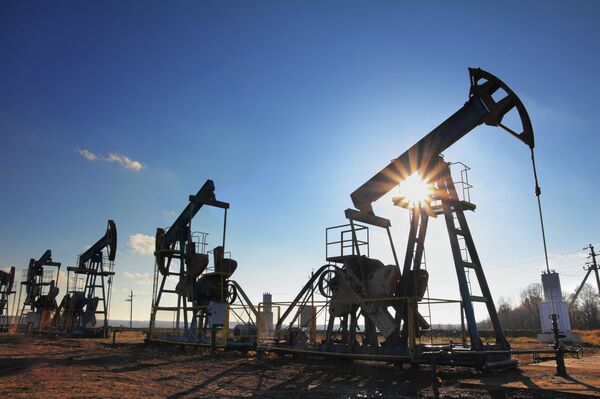WASHINGTON, August 15 (RIA Novosti) - The Islamic State's takeover of Northern Iraq and the Kurdistan region calls into question global economic development and future control of oil resources in the region, Steve Levine, an energy security expert and fellow at the New American Foundation told RIA Novosti Thursday.
“Iraq is a pivot point in the global economy. The global oil industry drives the economy around the world. By the end of the decade, economists have looked to Iraq as the savior to sustain the volume being produced at 90 million barrels of oil per day and take up the growth that is expected in the global economy,” said Levine in a discussion hosted by the New America Foundation’s National Security Program.
According to Levine, all of that is jeopardy as a result of the destabilization of Iraq by the Islamic State, formerly known as ISIS.
“ISIS understands the centrality of resources. ISIS has captured large oil fields both in Syria and in Iraq and it is producing oil, using the crews that were already on the ground, and selling that oil on the black market into the region earning, by one estimate, $1 million per day,” noted Levine.
Levine is not optimistic about the future of oil production and export from northern Iraq.
“ISIS has completely changed the game in the North. If it’s perceived that the oil pipelines are threatened, I have my doubts that on the front end Chevron, Exxon, and the rest will put in the investment necessary to develop those fields,” the expert noted.
The Islamic State is a Sunni group, which has been fighting in Syria and launched an offensive in Iraq in June.
The group's incursion towards the Kurdish capital of Erbil late last week and regional instability have driven out major oil producers in droves, sharply reducing the region’s 200,000 barrels per day output. Approximately 80 percent of foreign oil producers have left the region, including Exxon Mobil, Chevron, Total, and Gazprom Neft.

